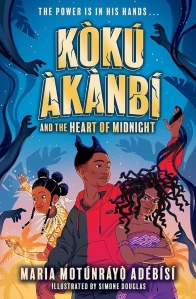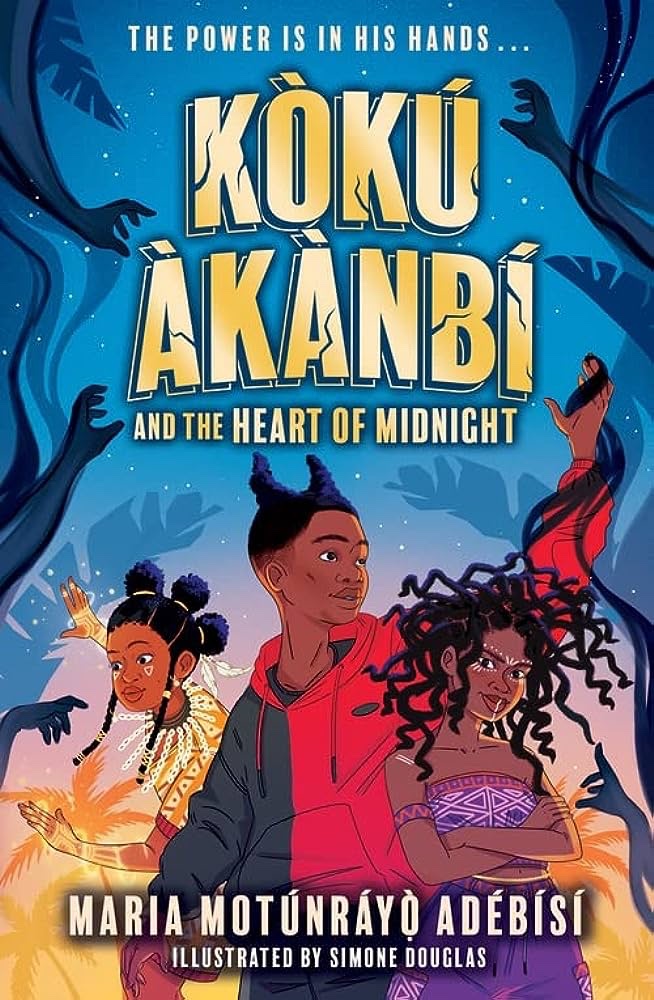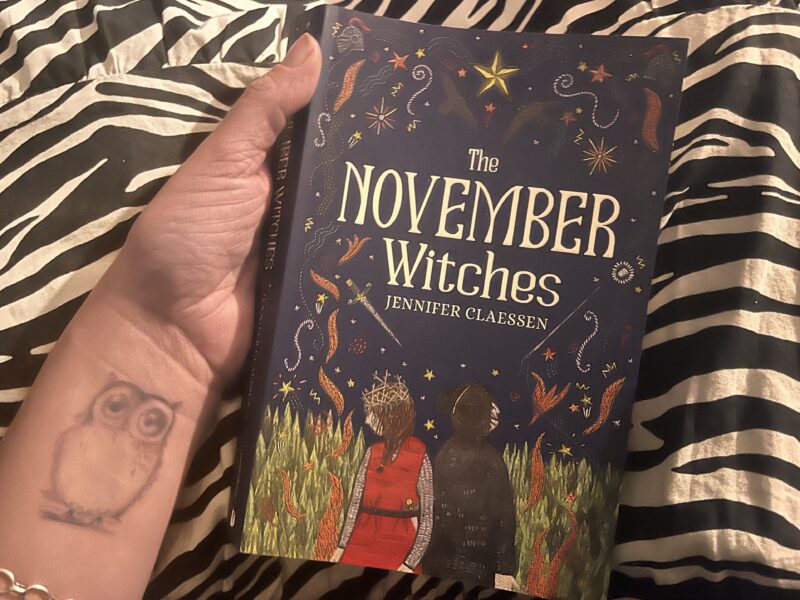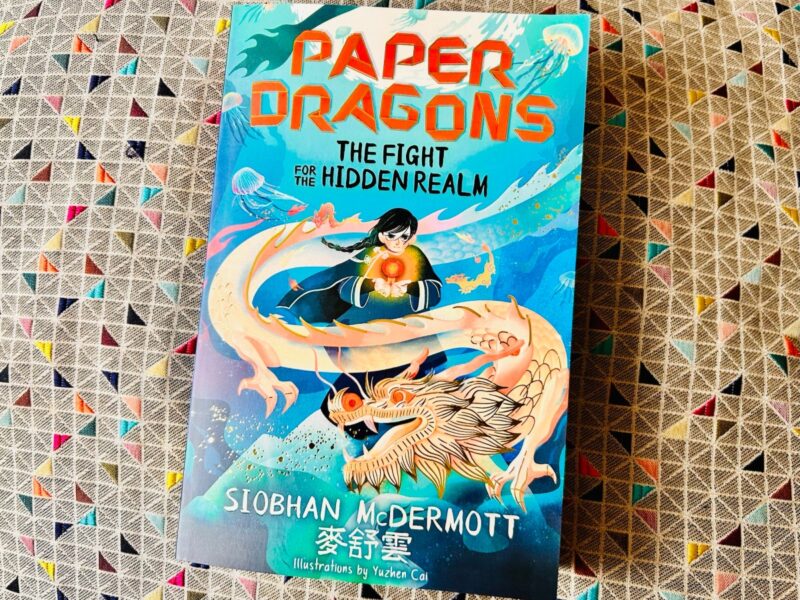At the moment, it would seem that children’s books steeped in African mythology are having a bit of a moment. This is very lucky for readers because wow, that’s a rich seam to mine! Adébísí’s Jujuland series is centred on West African lore and is jam-packed with feuding tribes, demons, and powerful magic.
Make sure you read Maria’s piece about how she created the wonderful character of Kòkú…

“When Koku accidentally unleashes an ancient demon, he must enter the magical world of Olori to claim his power.
Koku has always felt like he was cursed with a weird name and an illness to match. He thinks life can’t get any worse – until he unleashes a demon on a school trip. He expects detention, but instead he’s hurled into an impossible quest filled with MAGICAL TRIBES, MAN-EATING MONSTERS and VENGEFUL MERMAIDS.
When an ASSASSIN is sent to hunt him down, Koku’s only hope is to team up with a clumsy shapeshifter and a moody warrior-in-training. Together they enter the JUJULAND JUNGLE, a place filled with DANGEROUS SECRETS.
Can Koku discover his own power, before it’s too late?”
Creating Kòkú by Maria Motúnráyò Adébísí
I knew I wanted to write a story with a black British Indianna Jones with the script flipped, where the person with the cultural heritage would be in the driving seat of their own story. However, I didn’t know where to start. My very first attempt was a story about twins who were Nigerian and born in the UK and discovered a witch doctor in an African Antique store across the road from them. It wasn’t funny like Kòkú Àkànbí is and it didn’t have any Orisa Gods, it was just…okay. My little sister didn’t connect with it much – she’s always been the person I create for so I gave up and started again.
I distinctly remember the Eureka moment that gave birth to my cheeky, reluctant protagonist. Someone told me at an Open Mic night where I revealed my dreams of being a children’s author, that I should write something funny. They said anything written by me would probably be really funny, like I was. I was initially insulted. I was a very serious aspiring author, thank you very much. Then I realised being funny wasn’t a bad thing. It’s actually a good thing and it wasn’t at odds with also writing a huge stakes, complex, epic adventure. I opened my laptop that night, and wrote two paragraphs. I normally stick to third person when I write, but this time the first person narrative style came so easy.
A voice entered my head. It was a thirteen year old boy complaining about his uncle and dissing him behind his back. It was so easy to write. He reminded me of the class clown kids at school that I’d always admired and found it easy to have conversations with, even though they were always getting into trouble and I was generally a teacher’s pet. I’m a born and bred Londoner, the type that considers anywhere outside zone 6, “the north”. When I first went to Manchester as a kid to see my cousins who lived there I asked my Mum if they had shops there; I thought it would be all free roaming cows and sheep everywhere, but they did have a McDonald’s after all!
So the London city kid who goes on an adventure that’s way out of his depth was natural to me. Also, I’m British Nigerian and I don’t speak my language, like a lot of dual heritage kids. Growing up there were new things about my own culture that I was finding out every day because I was born in London, which seemed to both amuse and irritate my parents. I was always getting into trouble with them because of our culture clash – being a loud, opinionated British child that was taught to ask questions and demand things often went at odds with a Nigerian culture that prioritised respecting elders and being so in tune with your surroundings that you can understand without having to ask. That laid the foundation for the relationship between Uncle Tunji and Kòkú. But the voice was definitely inspired by every misunderstood boy I sat next to, who seemed to always get under the teacher’s skin with their sharp wit and sarcastic remarks. That boy is Kòkú.
This was a gripping read! I was totally hooked right from the start.
It’s so interesting to hear the inspirations behind the character of Kòkú and how Maria wove in elements of her own childhood into his story. I really enjoyed reading how life in contemporary Britain was contrasted with life in West Africa and the journey Kòkú went on as he learnt about the traditions and customs of his family and ancestors. And Maria’s talent for humour certainly shone through in the banter between some of the characters!
*I also want to highlight that Kòkú lives with a diagnosis of sickle cell anaemia which presents him with many challenges. I haven’t read a story with this condition featured before.*
This is such an engaging read – I would recommend it for readers aged 11+
Jo.
*Many thanks to Orion Publishing for inviting me to be a part of this blog tour*



